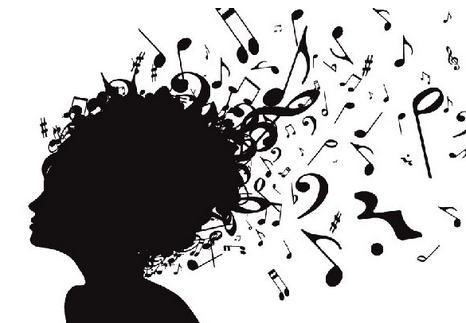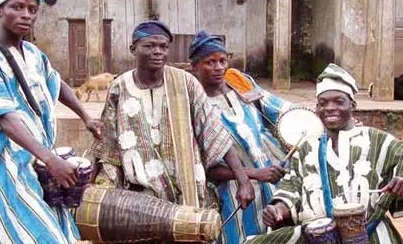
support@yorubalibrary.com
+2348073529208, 07038599574

Yoruba music, an integral part of the Yoruba people's cultural heritage, reflects a rich history that has evolved over centuries. Known for its unique rhythms, instruments, and styles, Yoruba music has played a significant role in shaping not only the cultural landscape of Nigeria but also influencing global music genres.
Origins of Yoruba Music
The origins of Yoruba music can be traced back to the early Yoruba civilization, where music was deeply inter-connected with daily life and spiritual practices. Music was used in various ceremonies, including weddings, funerals, and religious rituals, serving as a bridge between the physical and spiritual worlds. The Yoruba people believed that music had the power to communicate with the divine, making it an essential part of religious ceremonies.
Traditional Instruments
Traditional Yoruba music is characterized by its use of a wide variety of instruments, each with a distinct sound and purpose. Some of the most prominent instruments include:
• Talking Drum (Dundun):
The talking drum is a unique percussion instrument capable of mimicking the tone and prosody of human speech. It is often used to convey messages and tell stories.
• Bata Drums:
These are a set of three or more drums that produce different pitches and are commonly used in religious and social ceremonies.
• Agidigbo:
A thumb piano that produces melodic tunes, adding depth to Yoruba music.
• Sakara Drum:
A shallow drum played with sticks, used in traditional Yoruba music and storytelling.
Musical Styles and Genres
Traditional Yoruba music encompasses a variety of styles and genres, each serving different social and ceremonial purposes. Some popular styles include:
• Juju Music: Originating in the early 20th century, Juju music is characterized by its upbeat tempo and use of guitars, drums, and percussion instruments. It gained popularity through artists like King Sunny Adé and Ebenezer Obey.
• Apala Music: This style emerged in the 1930s, blending traditional Yoruba percussion with Islamic vocal influences. Apala music is known for its slow, rhythmic beats and socially conscious lyrics.
• Fuji Music: Evolving from Apala and traditional Yoruba drumming, Fuji music gained prominence in the 1960s. It features complex percussion patterns and dynamic vocal performances, popularized by artists like Sikiru Ayinde Barrister.
The Evolution of Yoruba Music
The evolution of Yoruba music reflects the broader cultural and social changes within Yoruba society. As Nigeria experienced modernization and globalization, Yoruba music adapted to incorporate new influences and technologies.
Influence of Western Music
The introduction of Western musical instruments and styles had a profound impact on Yoruba music. During the colonial era and post-independence, Yoruba musicians began incorporating elements of jazz, highlife, and Afrobeat into their compositions. This fusion of traditional and Western styles led to the emergence of new genres and the global recognition of Yoruba music.
Global Influence and Recognition
Yoruba music has transcended national boundaries, influencing artists and genres worldwide. The work of Nigerian musicians like Fela Kuti, who pioneered Afrobeat, brought international attention to Yoruba music and its cultural significance. Today, Yoruba music continues to inspire artists globally, contributing to the rich tapestry of world music.
The Role of Music in Yoruba Society
Music remains a vital part of Yoruba society, serving as a means of communication, education, and cultural preservation. It plays a crucial role in passing down oral traditions and histories from one generation to the next. Through music, the Yoruba people express their values, beliefs, and collective identity.
Contemporary Yoruba Music
In contemporary times, Yoruba music has embraced modern technologies and platforms, reaching wider audiences through digital media. Artists continue to innovate, blending traditional sounds with contemporary influences to create fresh and dynamic music that resonates with both local and international audiences.
Conclusion
The history and evolution of Yoruba music highlight its enduring significance and adaptability. From its roots in ancient rituals to its influence on global music, Yoruba music reflects the resilience and creativity of the Yoruba people. As it continues to evolve, Yoruba music remains a powerful expression of cultural identity and a testament to the rich heritage of the Yoruba civilization.

The unique styles of Yoruba Bata and Dundun dances…

The emergence of new age social media and impact i…